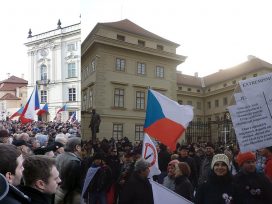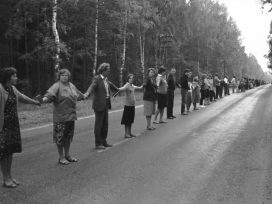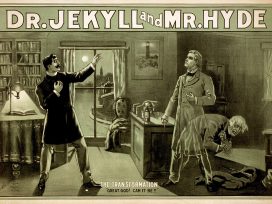Anyone who talks about Jewish life and the Jewish heritage cannot ignore eastern Europe. The Jews of eastern European are a paragon of frontier crossings, transnationalism, and the transfer of religion, tradition, language, and culture. From the eighteenth century onwards, most of the world’s Jewish population lived in eastern Europe. Between 1870 and the First World War, some 3.5 million Jewish emigrants left their homelands, predominantly the Russian Empire and Habsburg-ruled Galicia. This emigration was the starting point for the founding of new Jewish communities in the US, Canada, South Africa, Argentina, and Palestine. Today, the majority of American Jews have eastern European ancestors. In Israel, this is the case for more than half of the Jewish population. Some eighty per cent of Jews living in the world today have roots in Eastern Europe.
Despite this mass emigration, eastern Europe remained the centre of Jewish life. In the Soviet census of 1939, over 3 million people classified themselves as being of “Jewish nationality”. Before the Second World War, Poland was home to the largest Jewish community in Europe. The lives of 3.5 million Jewish Poles were closely intertwined with those of their non-Jewish neighbours in economics, society, and culture. Nearly all of the three million Polish Jews were killed during the Shoah. Remembrance only began after 1990, but still polarises Polish society. Memory is dominated by “competition among victims” as well as a kind of “virtual Jewry”, writes Katrin Steffen.
Lithuania was at the time a lively centre of religious and secular Jewish culture. This rich Jewish culture was almost completely wiped out in the genocide perpetrated by the Nazis and their accomplices. In Lithuania today, the acceptance of shared responsibility for the Holocaust is met with political resistance. However, writes Vytautas Toleikis, the heritage of Lithuanian Jews is slowly being integrated into the society’s collective consciousness.
While Ukraine’s official politics of remembrance omits Jewish heritage, private individuals and organisations are trying to integrate Jewish culture and history into Ukrainian identity. This process demands the recognition of Ukrainians’ share of responsibility for the Shoah. A difficult task, as Anatolij Podolskyi shows.
To this day, the Holocaust continues to shape our view of Jewish history. In Germany, eastern European Jews were for decades seen only as “dead Jews”. In a roundtable discussion with academics, curators, and educators, François Guesnet formulates this perspective in the strongest of terms. This way of looking at history implicitly amounts to a continuation of the totalitarian perspective of the German master race, he argues. All that is perceived is the genocide, while the individual lives, hopes, and aspirations that were extinguished are ignored.
It is precisely this mistake that Osteuropa’s volume Impulses for Europe seeks to correct by drawing attention to Jewish heritage in Europe today. The history of eastern European Jews is not the history of an exotic, isolated minority. Jews and non-Jews influenced one another’s lives. Eastern European Jewish history is inextricably intertwined with the history of Europe, but it is not a closed chapter of that history. The thoughts and actions of eastern European Jews continue to affect the world around us, providing impulses for music, art, philosophy, political thought, and international law.
The intellectuals Martin Buber, Joshua Heschel, and Emmanuel Levinas shared the eastern European Jewish experience and a universalistic ethic. Micha Brumlik notes that, above all it is Levinas to whom we owe an appreciation of what one could call “eastern European Jewry”. Jan Bloch is another intellectual of eastern European Jewish origin who deserves a prominent place in European collective memory, suggests Manfred Sapper. In lending impetus to the Hague Peace Conference, by advocating arms control as well as an international court of justice, Bloch was well ahead of his time.
These texts deal with more than heritage. They challenge widespread clichés about eastern European Jews. Despite resistance, there is a growing willingness to integrate Jewish life and the impact it had into national memory cultures. So much so, one may even speak of a renaissance of Jewish life eastern Europe.






